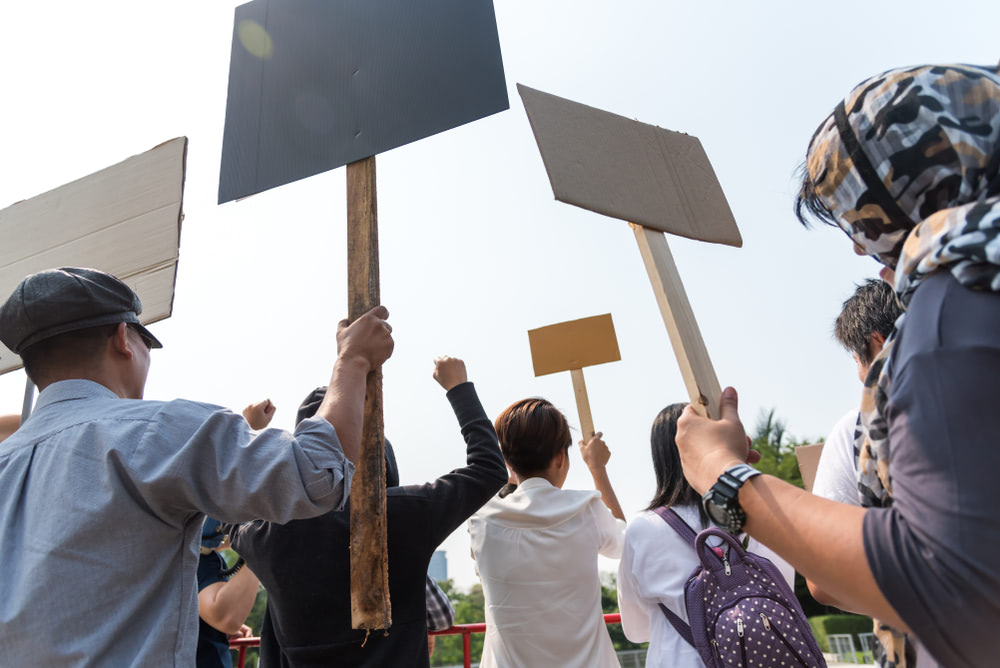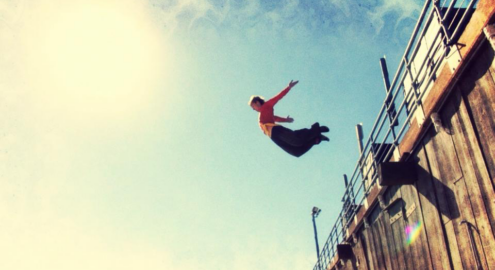Ask the Expert: How Can I Protect My Business From Looting During A Protest?

You just received word that there’s going to be a protest in your city. After the last year, which has seen both protests and rioting across the nation, you, a business owner, are concerned. Will your business be a target?
If so, is there anything you can do to prevent or mitigate it?
Ask the Expert: What Should We Think About After an Incident to get Back to Normal?
Protests, riots and mob mentality
Most people think of protests as political — especially in light of recent events, which have shown that protests can be a symptom of civil unrest, controversial events and disagreements within a local community. But demonstrations don’t have to have anything to do with politics — they can be sit-ins and colleges and universities, or even riots caused by sports teams winning a game.
The thing that all such gatherings have in common is a mob mentality. Often, when a large group of people comes together, they feel more comfortable doing things they wouldn’t normally do. This may be because they feel safe and protected within the mob, because they feel like they need to be accepted by the other members of the group, or because other people are doing things like destroying property or stealing and they feel they also have permission to do those things.
Often I describe mob mentality as a person getting drunk. As a person consumes more alcohol, the part of the brain that controls inhibition is affected. This can be similar to a person in a mob. You can see that a person you would never think of doing anything wrong, bad, or criminal, will actually be a major contributor. There are a lot of theories on mob mentality and the physiological effects on individuals.
Does this mean that every member of a protest is there to cause chaos and steal? Of course not.
Probability vs Foreseeability: Why Security Professionals Need to Know the Difference
The difference between a protest and a riot
First I need to explain that there is a difference between a protest and a riot. Protests are a means by which an individual or group wishes to express their beliefs, thoughts, concerns, or expressions, through various mechanisms, such as speeches, marches, and art, with a purpose to make a change.
A riot is a group of people wishing to express their beliefs in a means to create change using force, threats, or cohearsions.
A protest can become a riot however, but the big difference is a protest generally will not start as a riot, and oftentimes if a riot forms from a protest, it is generally not due to the original activists, but others at the protest, which I will explain below.
The four types of people you’ll find at a protest
In recent protests, there have often been many types of actors present. Many people are there in good faith. Others are explicitly there to cause problems.
- The activists: These are the people who have organized the event. They are acting in good faith, and often protesting an injustice, or seeking to make change and boost awareness of their issues. They often explicitly tell their members not to engage in violence.
- The anti-protesters: These people are there to act against the protesters. Sometimes it’s a competing group like the Westboro Baptist Church. Their goal is to instigate violence by provoking the protesters — they want to get attacked, either to gain publicity for their own message or to discredit the protesters. Police are often viewed as this group, but they are not a part of this group. They are a response team. The key is motivation. Why are people there? What do they wish to accomplish?
- The opportunists: These are real-life versions of the trolls we see trying to start fights on social media. They’re not at the protest for any political reason, but for the drama. For them, the protest is a party. They start trouble, film it for social media, and aren’t really on one side or there other. They’re simply tourists.
- The exploiters: These people business owners need to watch out for. These people aren’t part of the protests at all. In fact they may not even be in the same area as the protest. These people are often career criminals who are using the cover of the protest to commit crimes. They know the police are busy and won’t be able to respond to looting or other incidents and they’re using that information to target businesses in the area. It’s important to keep in mind that your site does not need to be near a protest for a looting to happen.
How can you prepare for an active shooter? 5 best practices
How can you protect your business?
When it comes to protecting your business from looting, focus on mitigation rather than prevention. You can’t stop a protest from happening or prevent criminals from exploiting it to steal from you, but you can reduce the impact of such crimes.
- Get proper insurance: Make sure your business and goods are insured, so you don’t feel compelled to protect property over people. Your employees and customers are your top priority. Make sure they’re safe — your insurance will reimburse you for the rest.
- Have good cameras: Cameras with facial and license plate recognition will make it easier for you to catch criminals after the fact, when the police have the resources to investigate.
- Use devices to protect your facility, not people: Rather than expecting security officers to stave off an attack, use devices like roll down gates, bollards, or foggers to protect your facility.
- Have a plan in place for looting: Prepare for this scenario before it happens, including a mass notification system for your visitors and staff. If your people know what to do ahead of time, this reduces the chance of people making snap decisions that might endanger them or their co-workers.
Need help developing a plan to combat looting? Contact us.



